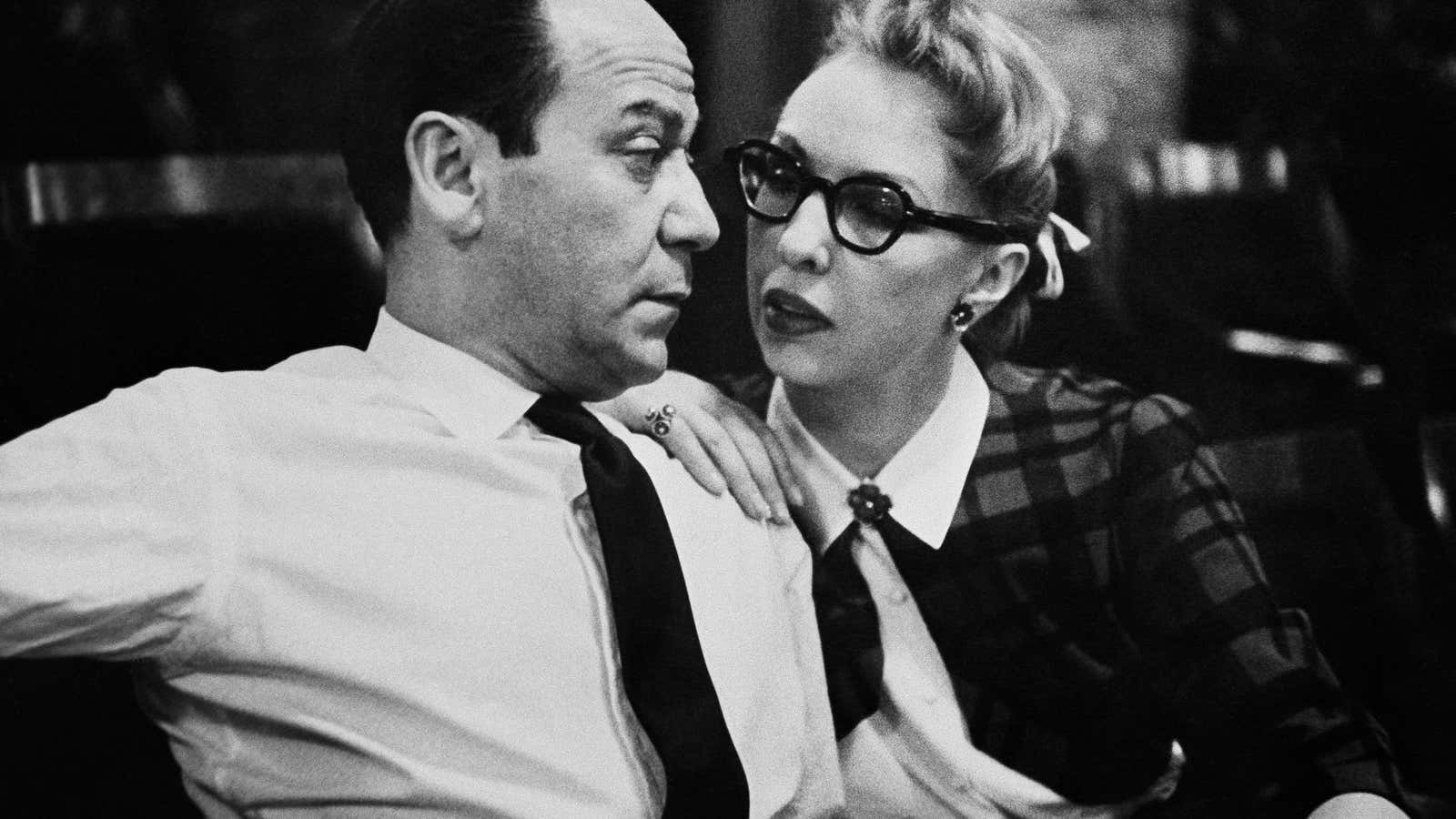US radio stations are banning the 73-year-old holiday standard “Baby, It’s Cold Outside” for suggestive banter that once seemed charming, but now feels pretty rapey.
The duet features a man who goes to increasingly desperate lengths to keep his date from going home, plying her with drinks and warning of wintry weather as he pleads: “Baby, don’t hold out” and “What’s the sense in hurting my pride?”
A groundswell against the song, which won an Oscar for the 1949 film Neptune’s Daughter, has been growing for awhile, but it seems to have reached a tipping point in the #MeToo era. Cleveland’s WDOK and San Francisco’s KOIT have pulled the song from their holiday playlists, NPR reports, and the singer Melinda DeRocker refused to record it on her recent holiday album.
Composer Frank Loesser wrote the song so that he and his wife Lynn Garland could perform it at holiday parties. (He usually introduced himself to the partygoers as the “evil of two Loessers.”) It became so popular that he sold it to MGM—a move that made Garland furious. ”I felt as betrayed as if I’d caught him in bed with another woman,” she wrote in her autobiography.
Snopes concluded the song “wasn’t written as a date-rape anthem.” But by modern standards, it’s way too lighthearted about sexual coercion.
Perhaps the song would have a better reputation if the gender roles were reversed. In Neptune’s Daughter, it’s performed twice: Once with Ricardo Montalbán as the aggressor and Esther Williams as his target, and then again with Betty Garrett pressuring Red Skelton. Skelton gets so flustered as he tries to leave that he puts on Garrett’s coat and picks up her purse.
In the song’s original score, the duet partners are designated only as “wolf” and “mouse,” with genders unspecified, and the song’s many decades of covers have featured several women taking the wolf’s role—including Miss Piggy of the Muppets, who relentlessly pursued ballet dancer Rudolf Nureyev, clad only in a towel.
Some have argued the song, despite superficial appearances, is an anthem to women’s empowerment:
“At the time period the song was written, ‘good girls,’ especially young, unmarried girls, did not spend the night at a man’s house unsupervised,” the pseudonymous author Slay Belle wrote for the feminist blog Persephone back in 2006. “This is a song about sex, wanting it, having it, maybe having a long night of it by the fire, but it’s not a song about rape. It’s a song about the desires even good girls have.”
In 2015, writer Helen Rosner stripped out the part of the apparent aggressor and concluded that the song as clearly about a “sexually aware woman worried about slut shaming.”
“The first two verses are both: (1) I have to go. (2)I’m having a great time, but (3) I’m scared of my family’s opinions,” Rosner wrote on Twitter. “She clearly wants to stay, is scared of the social ramifications of that choice, and in the end says ‘fuck society’s repressiveness’ & stays.”
“If you think Baby It’s Cold Outside is creepy, you are robbing the woman in that song of her agency,” Rosner concludes. “You are the problem. I’m not kidding.”
